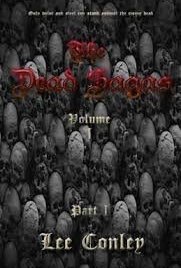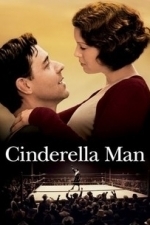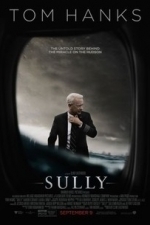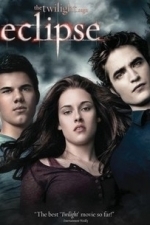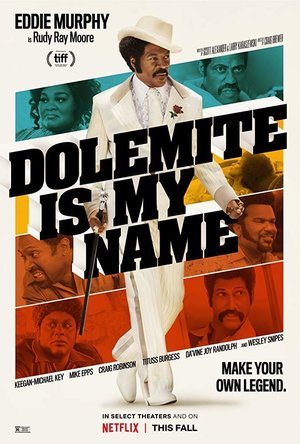Search
Search results
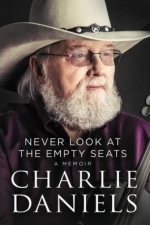
Never Look at the Empty Seats: A Memoir
Book
A tale of hard work, musical discovery, and faith, Charlie Daniels’s journey has been one of a...
Music biography
Kristy H (1252 KP) rated I Kissed a Girl in Books
Aug 12, 2021
A fun movie set romance
Noa Birnbaum's dream is to work in the movies: in horror special effects and makeup. She finally gets a chance to work on a real movie (one step closer to joining the union), but it means dropping out of school, where she's earning her theater degree. Her parents won't be pleased. On the set, she's face to face with actress Lilah Silver, whom Noa has had a crush on for ages. Lilah has her own dreams, to move beyond B-list horror films and into true stardom. This starring role as the "final girl" could be her opportunity. When she meets openly out Noa, Lilah may finally have a chance to admit to her own bisexuality. But a relationship could have its own problems for both Lilah and Noa.
"Noa'd thrown away everything else in her life for this job. And now she was seriously considering throwing the job away for a chance at a girl? Stupid beyond words."
This is a cute story whose strength comes across in its representation--queer characters covering bi, trans, lesbian and more. There's also some excellent Jewish representation, as both Noa and Lilah bond over their religious beliefs. As a member of the LGBTQIA community, I love seeing stories that reflect myself and my friends. Watching Lilah grapple with her bisexuality and coming out and seeing Noa hang out with her friends, being openly out and accepted. These are still stories and characters we do not get to see and read about regularly. Even better, it seems like I read a lot of queer YA books, not a lot where the characters are adults (although they might not always act like it in this story, ha). It was fun and refreshing.
"Special effects artist had never been on the list of things Good Jewish Girls Did."
For me, this book was a little long. It could have been a bit shorter and would have felt more snappy. A lot of the focus in this story is on miscommunication, which is a pet peeve of mine. I just can't handle when so much of the plot could be avoided if the characters just spoke openly to one another. It's also not entirely clear why Noa crushes so much on Lilah, to the point that it seems that she can't rationalize clearly. A lot of this inability to communicate or think clearly leads to some back and forth storylines, so it seems like as if the plot zigs and zags. Up and down. Will Noa go for a relationship with Lilah or keep her job? Is Lilah willing to risk her career for her sexuality? Again, if things had been just a bit shorter, we probably could have skipped a bit of this.
Still, this is a fun story. While Lilah and Noa can be frustrating sometimes, they are engaging characters. The horror film set adds an interesting level to the book (there's another plot line involving Lilah and threats to her safety). It's a little long, but I appreciated all the queer and Jewish rep. 3+ stars.
I received a copy of this book from Sourcebooks Casablanca and Netgalley in return for an unbiased review. It releases 8/3/2021.
"Noa'd thrown away everything else in her life for this job. And now she was seriously considering throwing the job away for a chance at a girl? Stupid beyond words."
This is a cute story whose strength comes across in its representation--queer characters covering bi, trans, lesbian and more. There's also some excellent Jewish representation, as both Noa and Lilah bond over their religious beliefs. As a member of the LGBTQIA community, I love seeing stories that reflect myself and my friends. Watching Lilah grapple with her bisexuality and coming out and seeing Noa hang out with her friends, being openly out and accepted. These are still stories and characters we do not get to see and read about regularly. Even better, it seems like I read a lot of queer YA books, not a lot where the characters are adults (although they might not always act like it in this story, ha). It was fun and refreshing.
"Special effects artist had never been on the list of things Good Jewish Girls Did."
For me, this book was a little long. It could have been a bit shorter and would have felt more snappy. A lot of the focus in this story is on miscommunication, which is a pet peeve of mine. I just can't handle when so much of the plot could be avoided if the characters just spoke openly to one another. It's also not entirely clear why Noa crushes so much on Lilah, to the point that it seems that she can't rationalize clearly. A lot of this inability to communicate or think clearly leads to some back and forth storylines, so it seems like as if the plot zigs and zags. Up and down. Will Noa go for a relationship with Lilah or keep her job? Is Lilah willing to risk her career for her sexuality? Again, if things had been just a bit shorter, we probably could have skipped a bit of this.
Still, this is a fun story. While Lilah and Noa can be frustrating sometimes, they are engaging characters. The horror film set adds an interesting level to the book (there's another plot line involving Lilah and threats to her safety). It's a little long, but I appreciated all the queer and Jewish rep. 3+ stars.
I received a copy of this book from Sourcebooks Casablanca and Netgalley in return for an unbiased review. It releases 8/3/2021.
Gareth von Kallenbach (980 KP) rated The Lion King (2019) in Movies
Jul 11, 2019
It seems recently that the Disney vault has exploded with the release of several of their classic animated films being remade. Unfortunately, the classics that have inspired these remakes have been redone with mixed results. The original The Lion King was released back in 1994 and it’s hard to believe that I was a junior in college when I saw it. Since that time, we’ve seen various iterations of the classic story, a few direct to VCR sequels and the awe-inspiring Broadway stage production (which if you are a serious fan of the movie I encourage you to see). It seems odd to discuss the plot of a movie that I’m certain everyone reading this has seen at least once (or a dozen times over). To the uninformed however, The Lion King is about a young cub named Simba (JD McCrary as the young voice and Donald Glover as the adult) who suffers the tragic loss of his father Mufasa (James Earl Jones) at the paws of his evil uncle Scar (Chiwetel Ejiofor). Scar convinces Simba that he is responsible for his father’s death and that he must leave the pride and never return. With the help of his faithful friends Timon (Billy Eichner), the lovable warthog Pumbaa (Seth Rogen), the ever wise Zazu (John Oliver) and his budding queen Nala (Beyoncé’) he learns that true courage comes from within and realizes he must face Scar if he is ever to bring peace back to the Pride Lands.
Given the recent track record, I wasn’t sure if this was going to be a retelling of the story as I remembered it, or a re-imagining of the story as a whole (and yes there is a difference). Thankfully, I can say that The Lion King draws practically all of its inspiration directly from the animated classic. Director Jon Favreau (who had already wowed audiences when he directed The Jungle Book) brings the same heart-warming, tear jerk moments that we all know and love. While he certainly didn’t take any risks with The Lion King, that’s exactly what made it such a pleasure to behold. He understood that there was no need to change the story into something new or try to make it something it shouldn’t be. True, for those who have seen the animated film it will feel incredibly familiar, but I think that’s exactly what fans are looking for. Changes and risks don’t always make a movie better, and The Lion King is a prime example of not breaking something that works.
The real star of the show however isn’t the actors, nor it’s incredible director, but the technology that went behind bringing our favorite felines to life. Disney refers to this as a “photo real movie”. The technology behind it merges both new and old together to bring the animals to life, indistinguishable from their real-life counterparts. Utilizing VR, animation and mixed with live action film-making it is practically impossible to distinguish what is live and what is animated. The character models have come a far way from the original Jumanji, which was heralded back in 1995 for it’s use of computer animated animals that supposedly looked and felt like the real thing. While Disney has always made great strides to make their computer-generated animals look and feel real (much like the absolutely stunning Jungle Book) The Lion King takes this to an entirely different level altogether.
Disney has done what has seemed practically impossible lately, bringing a classic back to the screen without changing what made the original such a classic. Unlike some of their more recent attempts, The Lion King holds true to the source material which has delighted fans for over 25 years. While the story doesn’t bring anything particularly new to the table, the photo realistic lions and their supporting cast feel as fresh as they ever have. If you aren’t a fan of the classic animated movie, The Lion King won’t necessarily change that, however the imagery alone may be reason enough to see it. I hope Disney takes note of this movie in particular, that fans don’t need a re-imagining of the stories that captivated our youths to bring the magic back. The Lion King is a testament to how the Disney classic still holds up today, and how to make something old feel new again.
http://sknr.net/2019/07/11/the-lion-king/
Given the recent track record, I wasn’t sure if this was going to be a retelling of the story as I remembered it, or a re-imagining of the story as a whole (and yes there is a difference). Thankfully, I can say that The Lion King draws practically all of its inspiration directly from the animated classic. Director Jon Favreau (who had already wowed audiences when he directed The Jungle Book) brings the same heart-warming, tear jerk moments that we all know and love. While he certainly didn’t take any risks with The Lion King, that’s exactly what made it such a pleasure to behold. He understood that there was no need to change the story into something new or try to make it something it shouldn’t be. True, for those who have seen the animated film it will feel incredibly familiar, but I think that’s exactly what fans are looking for. Changes and risks don’t always make a movie better, and The Lion King is a prime example of not breaking something that works.
The real star of the show however isn’t the actors, nor it’s incredible director, but the technology that went behind bringing our favorite felines to life. Disney refers to this as a “photo real movie”. The technology behind it merges both new and old together to bring the animals to life, indistinguishable from their real-life counterparts. Utilizing VR, animation and mixed with live action film-making it is practically impossible to distinguish what is live and what is animated. The character models have come a far way from the original Jumanji, which was heralded back in 1995 for it’s use of computer animated animals that supposedly looked and felt like the real thing. While Disney has always made great strides to make their computer-generated animals look and feel real (much like the absolutely stunning Jungle Book) The Lion King takes this to an entirely different level altogether.
Disney has done what has seemed practically impossible lately, bringing a classic back to the screen without changing what made the original such a classic. Unlike some of their more recent attempts, The Lion King holds true to the source material which has delighted fans for over 25 years. While the story doesn’t bring anything particularly new to the table, the photo realistic lions and their supporting cast feel as fresh as they ever have. If you aren’t a fan of the classic animated movie, The Lion King won’t necessarily change that, however the imagery alone may be reason enough to see it. I hope Disney takes note of this movie in particular, that fans don’t need a re-imagining of the stories that captivated our youths to bring the magic back. The Lion King is a testament to how the Disney classic still holds up today, and how to make something old feel new again.
http://sknr.net/2019/07/11/the-lion-king/
Ivana A. | Diary of Difference (1171 KP) rated The Dead Sagas, Volume I, Part I in Books
Jul 10, 2018
The Dead Sagas: Volume I, Part I by Lee Conley is a dark fantasy novel, a horror saga unlike any other. This is not a book for the weak. This is the book for the bravest, the ones who dare to read it, and the ones who can handle to continue living with what they now know.
Book description:
In a land called Arnar, where brave warriors fight for glory, a great evil comes alive.
The secrets of which the scholars were writing about in the past years, the scary stories that were being told in families throughout the generations are becoming true.
Creatures we thought were dead are now walking through the streets, spreading their disease, killing innocent people, and are about to take over Arnar.
The brave warriors are prepared to die defending their lands, but how can you fight creatures that barely feel pain? Are the warriors strong enough?
My Thoughts:
A story that will leave you breathless until the very end, a story that will push you into anxiety and make you bite your nails. A story that speaks about evil, and good, love, bravery and survival, a book that will sit on your shelf after reading it, and you’ll give it a look once in a while, and say: Ahh.. that was good!
In The Dead Sagas we have the chance to follow the stories of many characters. We will meet scholars and apprentices, we meet warriors and lords, we meet people from the street, doing everything they can to survive, we meet survivors that have seen things and we will meet sailors that are dying.
From chapter to chapter, the story goes from one character to another, and we slowly see the progression of the evil creatures, the spreading pace by pace. While it starts with sailors getting sick and dying afterwards on a ship, it slowly continues to become more and more intense, as we see people literally transforming into dead walkers right after they die, right in front of our eyes.
You will meet Bjorn, who escaped a tribe that cooks and eats people, you will meet Arnulf, who sees unimaginable things will being a lord of the watch. You will see him go through the greatest pain in life, you will see him afraid and brave, you will see him fighting, even though he wants to go and cry in the corner and die.
You will meet a girl that sells her body, so she can buy food for her and her little brother. You will meet a woman warrior, and learn about her amazing and brave story, you will watch how people see their loved ones die right in front of their eyes, and sometimes, they even have to be the ones to kill them in order to survive.
Even though we learn so much about the characters and their stories, it was hard for me to really connect with any of them, as the chapters moved fast from one character to another. This is probably the reason to why I also found the beginning quite slow. It took me around 90 pages, to start realising what is happening.
There will be a lot of violence in this book, a lot of swearing, and scenes that might upset or offend you. This book is not for the weak ones, that is for sure. And while for some of you this might put you off this book, I do have to say that if the book didn’t have a strong language and violent scenes like it does, it wouldn’t have been the same.
The biggest ''flaw'' I had was the ending. I won’t say anything spoiler-ish , as I don’t want to ruin the book for you, but let’s just say that I didn’t expect it to end the way it did.
Even though this is a story about the dead people walking around and killing everything in front of them, this is actually a book about the survivors, the ones that managed to retell this story - the ones that lost anything and everything to be where they are now. This is for the lives of the brave souls, the mighty warriors, that were noble and tried to protect their lands.
A massive thanks to the author, Lee Conley, who managed to find me in the deep waters of Twitter, and who agreed to send me a paperback copy of this book in exchange for my honest opinion.
Book description:
In a land called Arnar, where brave warriors fight for glory, a great evil comes alive.
The secrets of which the scholars were writing about in the past years, the scary stories that were being told in families throughout the generations are becoming true.
Creatures we thought were dead are now walking through the streets, spreading their disease, killing innocent people, and are about to take over Arnar.
The brave warriors are prepared to die defending their lands, but how can you fight creatures that barely feel pain? Are the warriors strong enough?
My Thoughts:
A story that will leave you breathless until the very end, a story that will push you into anxiety and make you bite your nails. A story that speaks about evil, and good, love, bravery and survival, a book that will sit on your shelf after reading it, and you’ll give it a look once in a while, and say: Ahh.. that was good!
In The Dead Sagas we have the chance to follow the stories of many characters. We will meet scholars and apprentices, we meet warriors and lords, we meet people from the street, doing everything they can to survive, we meet survivors that have seen things and we will meet sailors that are dying.
From chapter to chapter, the story goes from one character to another, and we slowly see the progression of the evil creatures, the spreading pace by pace. While it starts with sailors getting sick and dying afterwards on a ship, it slowly continues to become more and more intense, as we see people literally transforming into dead walkers right after they die, right in front of our eyes.
You will meet Bjorn, who escaped a tribe that cooks and eats people, you will meet Arnulf, who sees unimaginable things will being a lord of the watch. You will see him go through the greatest pain in life, you will see him afraid and brave, you will see him fighting, even though he wants to go and cry in the corner and die.
You will meet a girl that sells her body, so she can buy food for her and her little brother. You will meet a woman warrior, and learn about her amazing and brave story, you will watch how people see their loved ones die right in front of their eyes, and sometimes, they even have to be the ones to kill them in order to survive.
Even though we learn so much about the characters and their stories, it was hard for me to really connect with any of them, as the chapters moved fast from one character to another. This is probably the reason to why I also found the beginning quite slow. It took me around 90 pages, to start realising what is happening.
There will be a lot of violence in this book, a lot of swearing, and scenes that might upset or offend you. This book is not for the weak ones, that is for sure. And while for some of you this might put you off this book, I do have to say that if the book didn’t have a strong language and violent scenes like it does, it wouldn’t have been the same.
The biggest ''flaw'' I had was the ending. I won’t say anything spoiler-ish , as I don’t want to ruin the book for you, but let’s just say that I didn’t expect it to end the way it did.
Even though this is a story about the dead people walking around and killing everything in front of them, this is actually a book about the survivors, the ones that managed to retell this story - the ones that lost anything and everything to be where they are now. This is for the lives of the brave souls, the mighty warriors, that were noble and tried to protect their lands.
A massive thanks to the author, Lee Conley, who managed to find me in the deep waters of Twitter, and who agreed to send me a paperback copy of this book in exchange for my honest opinion.
Phillip McSween (751 KP) rated Cinderella Man (2005) in Movies
Jan 15, 2018
Classic
Cinderella Man is one of those films where I ask myself, "Why in the world has it taken me thirteen years to watch this?" It could be the fact that I've never had a strong love for films based on true stories or that I'm all binged out on boxing movies. Whatever the case may be, I'm glad Movies 365 has brought this film into my life and now into my heart.
There's so much to like about the movie, I'm not even sure where to start. Maybe Paul Giamati giving the performance of his life as trainer Joe Gould? Talk about playing a fabulous role. He's brash and straightforward, yet full of heart. He's not a fighter, but will go toe-to-toe with anyone to protect the people he cares about. Outshining him, however, is a stellar lead performance by legend Russell Crowe playing man of the hour James Braddock. Crowe makes you feel this guy, makes you love him. In one of the early scenes where Braddock gives his entire breakfast to his starving daughter before leaving for a strenuous day of work, you quickly realize that this is a guy you want to get behind and root for.
In the same vein, kudos to Ron Howard for using the source material to flesh out the stakes. The story could have just as easily been about a man trying to get back into boxing, but he made it about a man trying to feed his family and survive. It's painful to watch at times, but necessary. If you're not the least bit inspired after viewing this film, I don't know what will do it for you.
Howard also succeeds with excellent pace management. Seamless cuts between fights keep the action fresh and the viewer engaged. You don't get a whole lot of time to catch your breath. The cinematics are shot in a way that's gritty and real, beyond fitting for the Great Depression era when the film takes place.
Other than me almost going hoarse from screaming at the screen so much, I can't find many flaws with the film (hiccups, nothing major). I challenge you not to love this film about an aging boxer that just wants to keep his family alive. I give Cinderella Man a 95.
There's so much to like about the movie, I'm not even sure where to start. Maybe Paul Giamati giving the performance of his life as trainer Joe Gould? Talk about playing a fabulous role. He's brash and straightforward, yet full of heart. He's not a fighter, but will go toe-to-toe with anyone to protect the people he cares about. Outshining him, however, is a stellar lead performance by legend Russell Crowe playing man of the hour James Braddock. Crowe makes you feel this guy, makes you love him. In one of the early scenes where Braddock gives his entire breakfast to his starving daughter before leaving for a strenuous day of work, you quickly realize that this is a guy you want to get behind and root for.
In the same vein, kudos to Ron Howard for using the source material to flesh out the stakes. The story could have just as easily been about a man trying to get back into boxing, but he made it about a man trying to feed his family and survive. It's painful to watch at times, but necessary. If you're not the least bit inspired after viewing this film, I don't know what will do it for you.
Howard also succeeds with excellent pace management. Seamless cuts between fights keep the action fresh and the viewer engaged. You don't get a whole lot of time to catch your breath. The cinematics are shot in a way that's gritty and real, beyond fitting for the Great Depression era when the film takes place.
Other than me almost going hoarse from screaming at the screen so much, I can't find many flaws with the film (hiccups, nothing major). I challenge you not to love this film about an aging boxer that just wants to keep his family alive. I give Cinderella Man a 95.
Acanthea Grimscythe (300 KP) rated Glow in Books
May 16, 2018
I have a love hate relationship with Glow, an upcoming young adult novel from Megan E. Bryant. Earlier this year, I read The Radium Girls by Kate Moore - an absolutely horrifying account of injustices committed against young women under the guise of patriotism. Before Moore, I cannot recall ever hearing about the dial painters. This book provides a fictional account based heavily on true stories about the girls that met their untimely demise.
The main character of Glow is a young woman of eighteen by the name of Jubilee - but don't you dare call her that! She prefers Julie. After making the ultimate sacrifice for her mother, she spends the summer unraveling the mysteries behind paintings she finds at thrift stores while her best friend prepares for college.
Between each chapter, readers find an epistolary account from the mind of Lydia Grayson. Like her sisters, Lydia is one of the many girls that worked for the American Radium Company (I think I got that right). The Grayson sisters, for those that haven't read The Radium Girls in order to make the comparison, appears to be based loosely on the Maggia sisters, while the company is, obviously, a fictionalized version of the United States Radium Corporation. (Amelia "Mollie" Maggia was the first of the Radium Girls to die.)
Unlike most books that attempt this method, I do not find the switch between perspectives and styles to be detrimental or clunky - if anything, it is inconvenient. Rather than wrap up preceding chapters, Bryant uses these switches to leave Julie's story on a cliffhanger more than once throughout the book. This style can easily be avoided, considering the letters written from Lydia to her boyfriend are interesting enough on their own to propel the reader forward.
While Julie's story offers an plot that appeals to younger readers, I feel Glow would have worked just fine without it. For that purpose, I'm caught between a three and a four on this book. Ultimately, I lean toward the latter and must applaud Bryant on the amount of research she obviously put into writing this book. Julie's story is unbelievable and full of things that I simply have no interest in, but the haunting tale that the Grayson sisters weave is horrifying.
I would like to thank NetGalley and the publisher for providing me with a copy of this book for the purpose of unbiased review.
The main character of Glow is a young woman of eighteen by the name of Jubilee - but don't you dare call her that! She prefers Julie. After making the ultimate sacrifice for her mother, she spends the summer unraveling the mysteries behind paintings she finds at thrift stores while her best friend prepares for college.
Between each chapter, readers find an epistolary account from the mind of Lydia Grayson. Like her sisters, Lydia is one of the many girls that worked for the American Radium Company (I think I got that right). The Grayson sisters, for those that haven't read The Radium Girls in order to make the comparison, appears to be based loosely on the Maggia sisters, while the company is, obviously, a fictionalized version of the United States Radium Corporation. (Amelia "Mollie" Maggia was the first of the Radium Girls to die.)
Unlike most books that attempt this method, I do not find the switch between perspectives and styles to be detrimental or clunky - if anything, it is inconvenient. Rather than wrap up preceding chapters, Bryant uses these switches to leave Julie's story on a cliffhanger more than once throughout the book. This style can easily be avoided, considering the letters written from Lydia to her boyfriend are interesting enough on their own to propel the reader forward.
While Julie's story offers an plot that appeals to younger readers, I feel Glow would have worked just fine without it. For that purpose, I'm caught between a three and a four on this book. Ultimately, I lean toward the latter and must applaud Bryant on the amount of research she obviously put into writing this book. Julie's story is unbelievable and full of things that I simply have no interest in, but the haunting tale that the Grayson sisters weave is horrifying.
I would like to thank NetGalley and the publisher for providing me with a copy of this book for the purpose of unbiased review.
Gareth von Kallenbach (980 KP) rated Sully (2016) in Movies
Jul 15, 2019
“The Miracle on the Hudson” is a story that many are acquainted with and many have forgotten in the seven years since the incredibly miraculous landing of US Airways flight 1549 on January 15, 2009. In Sully, Clint Eastwood brings the attention and focus back to this historic event in order to tell audiences about more than just a forced landing into the Hudson River.
Tom Hanks stars as Chester “Sully” Sullenberger reminding viewers how he can so easily represent a character on screen whether they are fictional or based off of real people. His portrayal of “Sully” demonstrates the varying issues surrounding the events the day of the landing and those that followed. When the events played themselves out in the public, it appeared very “cut and dry.” The film reveals the depth at which the pilots dealt with the stress of the publicity, the investigation, scrutiny, and the reality of facing one’s own mortality.
The story, although generally familiar, is engrossing in its presentation by Eastwood. The story is built in layers to where you get to feel the pain and fear that Sully experiences with this near death experience. We witness how he tries to cope with this situation and struggles with the realization that he accomplished the near impossible. The scenes are not over sensationalized. They are not trite. They allow for a true representation of what took place and all of the people affected by it. The film is an imaginative and thought provoking account of real events. Sully demonstrates to audiences the depth inherent with events, circumstances, and individuals.
“The Miracle on the Hudson” had reporters, investigators, and the general public consumed with numbers; 155 people on board, 208 seconds of total flight, altitude of 2818 ft, 2 engines lost to bird strike, a water temperature of 36 degrees, air temperature of 20 with a wind chill of -5, and 1 pilot who made the right decision that day. It is not the numbers that the film is concerned with, it is the people. Eastwood allows for their stories to be on display and demonstrate the reality that they all faced during the incident and the days that followed. The film is outstanding in displaying the humanity and chaos of the event.
Tom Hanks stars as Chester “Sully” Sullenberger reminding viewers how he can so easily represent a character on screen whether they are fictional or based off of real people. His portrayal of “Sully” demonstrates the varying issues surrounding the events the day of the landing and those that followed. When the events played themselves out in the public, it appeared very “cut and dry.” The film reveals the depth at which the pilots dealt with the stress of the publicity, the investigation, scrutiny, and the reality of facing one’s own mortality.
The story, although generally familiar, is engrossing in its presentation by Eastwood. The story is built in layers to where you get to feel the pain and fear that Sully experiences with this near death experience. We witness how he tries to cope with this situation and struggles with the realization that he accomplished the near impossible. The scenes are not over sensationalized. They are not trite. They allow for a true representation of what took place and all of the people affected by it. The film is an imaginative and thought provoking account of real events. Sully demonstrates to audiences the depth inherent with events, circumstances, and individuals.
“The Miracle on the Hudson” had reporters, investigators, and the general public consumed with numbers; 155 people on board, 208 seconds of total flight, altitude of 2818 ft, 2 engines lost to bird strike, a water temperature of 36 degrees, air temperature of 20 with a wind chill of -5, and 1 pilot who made the right decision that day. It is not the numbers that the film is concerned with, it is the people. Eastwood allows for their stories to be on display and demonstrate the reality that they all faced during the incident and the days that followed. The film is outstanding in displaying the humanity and chaos of the event.
Gareth von Kallenbach (980 KP) rated The Twilight Saga: Eclipse (2010) in Movies
Aug 8, 2019
The beautiful people of Forks, Washington, are back in the latest installment of the Twilight saga. This time around there’s a little bit more story and a lot more action. Still, not nearly enough of either to make this movie compelling for anyone but diehard fans. Oh, I’m sorry..Twi-hard fans.
Edward Cullen (Robert Pattinson) and Bella Swann (Kirsten Stewart) are reunited and still very much in love, to the brokenhearted dismay of Jacob Black (Tayor Lautner). As Edward and Bella prepare for graduation and contemplate marriage, Victoria, a vengeful vampire now played by Brice Howard, is creating an army to destroy Bella and the Cullen family. Because of this, the Cullen and the werewolves form an uneasy alliance to keep Bella from harm. Bella finds herself struggling with her desire to be with Edward and have him “change” her and her feelings for Jacob. Not your typical teenage angst, but in Bella’s world of vampires and werewolves, these are actually the least of her worries.
Directed by David Slade, of Hard Candy and 30 Days of Night, Eclipse at least makes attempts to flesh out the supporting characters, which helped keep the movie interesting because, honestly, if it just focused on the love triangle of Edward, Bella and Jacob, it would have felt interminably slower. While Pattinson, Stewart and Lautner play tortured, awkward and earnest well, they play it too much. Thank goodness for Chief Swan, portrayed with perfect unease by Billy Burke and the stories of Jasper (Jackson Rathbone) and Rosalie (Nikki Reed) and the first Quileute werewolves.
When there was action, it was fast and furious and and when there was humor it was usually when Jacob was around, but I’m sure there were a couple of funny lines that were missed because of the collective sighs and moans the predominantly female audience emitted every time Jacob graced the screen in all his shirtless splendor. A slowly paced tale that picks up speed towards the end, Eclipse is definitely easier to watch than the previous two movies. While no true Twi-hard will care what critics say about the movie, if you’re on the fence about watching this movie, stay on it, especially if you haven’t read the series or watched the previoius two.
Edward Cullen (Robert Pattinson) and Bella Swann (Kirsten Stewart) are reunited and still very much in love, to the brokenhearted dismay of Jacob Black (Tayor Lautner). As Edward and Bella prepare for graduation and contemplate marriage, Victoria, a vengeful vampire now played by Brice Howard, is creating an army to destroy Bella and the Cullen family. Because of this, the Cullen and the werewolves form an uneasy alliance to keep Bella from harm. Bella finds herself struggling with her desire to be with Edward and have him “change” her and her feelings for Jacob. Not your typical teenage angst, but in Bella’s world of vampires and werewolves, these are actually the least of her worries.
Directed by David Slade, of Hard Candy and 30 Days of Night, Eclipse at least makes attempts to flesh out the supporting characters, which helped keep the movie interesting because, honestly, if it just focused on the love triangle of Edward, Bella and Jacob, it would have felt interminably slower. While Pattinson, Stewart and Lautner play tortured, awkward and earnest well, they play it too much. Thank goodness for Chief Swan, portrayed with perfect unease by Billy Burke and the stories of Jasper (Jackson Rathbone) and Rosalie (Nikki Reed) and the first Quileute werewolves.
When there was action, it was fast and furious and and when there was humor it was usually when Jacob was around, but I’m sure there were a couple of funny lines that were missed because of the collective sighs and moans the predominantly female audience emitted every time Jacob graced the screen in all his shirtless splendor. A slowly paced tale that picks up speed towards the end, Eclipse is definitely easier to watch than the previous two movies. While no true Twi-hard will care what critics say about the movie, if you’re on the fence about watching this movie, stay on it, especially if you haven’t read the series or watched the previoius two.
Phillip McSween (751 KP) rated Dolemite Is My Name (2019) in Movies
Feb 11, 2020
Perfect Score With No Shame
Dolemite is My Name follows the story of Rudy Ray Moore (Eddie Murphy) and his rise to fame with the creation of his legendary character Dolemite.
Acting: 10
Beginning: 10
The first five minutes involves a hilarious scene of Rudy trying to get his record played by a DJ (played by Snoop Dogg) who only puts on the hits. It’s a great introduction to the character and his plight. Beautiful way to get things kicked off.
Characters: 10
Rudy would be enough to score this category a ten on his own. His charisma oozes onto the screen, only matched by his never-quit attitude. It’s no wonder he quickly became one of my favorite protagonists in film. Dolemite is My Name doesn’t stop there as each character brings a fun, unique flare to the film. You’ll get to see Wesley Snipes playing the role of actor/director D’Urville Martin. With all the craziness going on throughout the movie, D’Urville remains unamused and his lack of enthusiasm adds a hilarious punch to the film. I also thoroughly enjoyed characters Jerry Jones (Keegan Michael-Key) and Lady Reed (Da’Vine Joy Randolph).
Cinematography/Visuals: 10
Conflict: 10
Rudy is trying to get a movie off the ground with little money and resources. It feels like everywhere he turns, a new problem arises. The ensuing shakeups keeps things interesting and keeps Rudy advancing the story. Everything crazy that can possibly happen throughout the filming of his movie absolutely does and it’s fun to watch how things unfold.
Entertainment Value: 10
Memorability: 10
Pace: 10
Plot: 10
From albums to movies, you get to see every nuance of Rudy’s journey as the story progresses. Varying other side stories keep things interesting while not deviating too much as to slow the overall pace down. Every little piece works perfectly.
Resolution: 10
Great wrap to the movie that makes you appreciate Rudy even more. It’s both a culmination for all Rudy’s hard work and the true definition of who he is as a person. I appreciate its simplicity and finality, not overstaying its welcome.
Overall: 100
Call me crazy, but at the time of this review, Dolemite is my Name holds the ninth spot in my All-Time Top Ten List. It has everything you want in a movie from funny to heart. Hands-down, it is the best biopic I’ve seen.
Acting: 10
Beginning: 10
The first five minutes involves a hilarious scene of Rudy trying to get his record played by a DJ (played by Snoop Dogg) who only puts on the hits. It’s a great introduction to the character and his plight. Beautiful way to get things kicked off.
Characters: 10
Rudy would be enough to score this category a ten on his own. His charisma oozes onto the screen, only matched by his never-quit attitude. It’s no wonder he quickly became one of my favorite protagonists in film. Dolemite is My Name doesn’t stop there as each character brings a fun, unique flare to the film. You’ll get to see Wesley Snipes playing the role of actor/director D’Urville Martin. With all the craziness going on throughout the movie, D’Urville remains unamused and his lack of enthusiasm adds a hilarious punch to the film. I also thoroughly enjoyed characters Jerry Jones (Keegan Michael-Key) and Lady Reed (Da’Vine Joy Randolph).
Cinematography/Visuals: 10
Conflict: 10
Rudy is trying to get a movie off the ground with little money and resources. It feels like everywhere he turns, a new problem arises. The ensuing shakeups keeps things interesting and keeps Rudy advancing the story. Everything crazy that can possibly happen throughout the filming of his movie absolutely does and it’s fun to watch how things unfold.
Entertainment Value: 10
Memorability: 10
Pace: 10
Plot: 10
From albums to movies, you get to see every nuance of Rudy’s journey as the story progresses. Varying other side stories keep things interesting while not deviating too much as to slow the overall pace down. Every little piece works perfectly.
Resolution: 10
Great wrap to the movie that makes you appreciate Rudy even more. It’s both a culmination for all Rudy’s hard work and the true definition of who he is as a person. I appreciate its simplicity and finality, not overstaying its welcome.
Overall: 100
Call me crazy, but at the time of this review, Dolemite is my Name holds the ninth spot in my All-Time Top Ten List. It has everything you want in a movie from funny to heart. Hands-down, it is the best biopic I’ve seen.

National Geographic Kids
Education and Magazines & Newspapers
App
Recognized as a 2014 Parents’ Choice Recommended Mobile App, National Geographic Kids magazine for...


